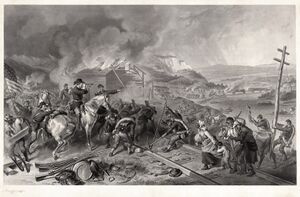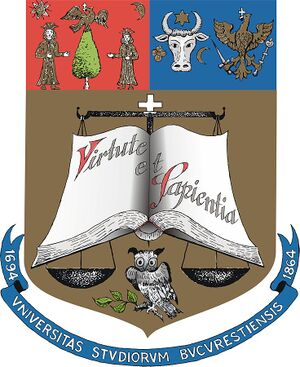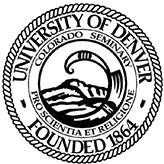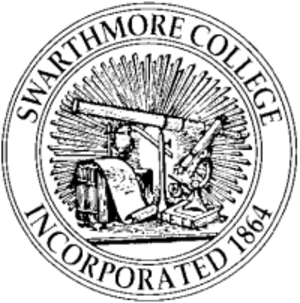1864
Jump to navigation
Jump to search
1854 < 1855 < 1856 < 1857 < 1858 < 1859 < 1860 <1861 < 1862 < 1863 < 1864 > 1865 > 1866 > 1867 > 1868 > 1869 > 1870 > 1871 > 1872 > 1873 > 1874
 Union general Sherman destroys a large part of Georgia, following a "scorched earth" policy. | |
| In year 1864, the Southern states' effort to break out of the United States is collapsing. In South America, the even bloodier War of the Triple Alliance tries to break Paraguay, while Prussia schemes to unify Germany. |
Contents
Events
January–March
- February 1 – Danish-Prussian War (Second Schleswig War): 57,000 Austrian and Prussian troops cross the Eider River into Denmark.
- March 9 – American Civil War: Abraham Lincoln appoints Ulysses S. Grant commander in chief of all Union armies.
April–June
- May 4 – Société Générale, a major financial group in France, is founded.[1]
- May 21 – The Russian Empire begins the Ethnic cleansing of Circassians. More than 1.5 million Circassians are driven from their homeland to the Ottoman Empire, ending the Russo-Circassian War.
- June 18 – The Decree of Extended Freedom of Trade introduces complete freedom of trade in Sweden.
- June 21 – New Zealand Wars: The Tauranga Campaign ends.
July–September
- July 18 – President Lincoln issues a true proclamation of conscription of 500,000 men, for the U.S. Civil War.
- July 19 – The Third Battle of Nanking climaxes, when the Taiping Heavenly Kingdom capital of Nanking falls to an assault by Imperial Qing Dynasty forces, in the last major action of the Taiping Rebellion in China. There are probably more than a million troops in the battle, and the Taiping army sustains at least 100,000 dead.
- August 22 – The First Geneva Convention, for the Amelioration of the Condition of the Wounded in Armies in the Field, is signed in Geneva by 12 European states, under the auspices of the International Committee for Relief to the Wounded (predecessor of the International Red Cross and Red Crescent Movement).
- September 1 – Charlottetown Conference: Delegates from the Canadian colonies meet, to discuss Canadian Confederation.
- September 5–6 – Bombardment of Shimonoseki: An American, British, Dutch and French alliance engages the powerful feudal Japanese warlord or daimyō Lord Mōri Takachika, of the Chōshū clan, based in Shimonoseki, Japan.
- September 7 – American Civil War: Atlanta is evacuated on orders of Union General William Tecumseh Sherman.
- September 28 – The International Workingmen's Association is founded in London.
October–December
- October 10 – The Quebec Conference begins, to discuss plans for the creation of a Dominion of Canada.
- October 30– The Second Schleswig War is concluded. Denmark renounces all claim to Schleswig, Holstein, and Lauenburg, which come under Prussian and Austrian administration.
- November 8 – U.S. presidential election, 1864: Abraham Lincoln is reelected, in an overwhelming victory over George B. McClellan.
- November 12 – Hostilities in the Paraguayan War open, with the Paraguayan ship Tacuarí capturing the Brazilian Marquês de Olinda, in the Paraguay River.
- November 15 – American Civil War – Sherman's March to the Sea begins: Union General Sherman burns Atlanta and starts to move south, living off the land, and causing extensive devastation to crops and mills.
- November 20 – The judicial reform of Alexander II is launched in the Russian Empire.
- November 25 – American Civil War: A group of Confederate operatives, calling themselves the Confederate Army of Manhattan, starts fires in more than 20 locations, in an unsuccessful attempt to burn down New York City.
- November 29 – American Indian Wars: Sand Creek massacre – Colorado volunteers, led by Colonel John Chivington, massacre at least 400 Cheyenne and Arapaho noncombatants at Sand Creek, Colorado (where they had been given permission to camp); many of the dead are subsequently mutilated.
- December 8 – Syllabus errorum: Pope Pius IX condemns theological liberalism as an error, and claims the supremacy of Roman Catholic Church authority over civil society. He also condemns rationalism and socialism.
- December 13 – Paraguayan War: Paraguay formally declares war on the Empire of Brazil, in support of the Uruguayan National Party. The war continues to 1870, with around 300,000 Paraguayan deaths.
Date unknown
- The Second Anglo-Ashanti War ends.
- The Dutch conquer southern Sumatra.
- Yasudaya Currency Exchange Bank, as predecessor of Mizuho Financial Group, is founded in Edo (modern-day Tokyo), Japan.
- Merchants Bank of Halifax, as predecessor of Royal Bank of Canada, founded in Nova Scotia.{
Events
| Event | Start | End | Description |
|---|---|---|---|
| Pax Brittanica | 1815 | 1915 | |
| Victorian era | 1840 | 1901 | |
| American Civil War | 1861 | 1865 | The Start of US World dominations, the Civil war saw capitalists fight capitalists in a war over tax, slavery and the question how big and kind of an imperial force the US should become on the North American continent. |
New Groups
| Group | Image | Type | Description |
|---|---|---|---|
| University of Bucharest |  | Public | University of national Romanian importance. |
| Queensland/Police |  | ||
| Heineken |  | Multinational brewing company. The management of the company has a heavy Bilderberg habit. | |
| University of Denver |  | Military ranks Reserach | Several of its alumni are high-ranking spooks. |
| Swarthmore College |  | Private liberal arts college | |
| Dagens Nyheter |  | Swedish corporate newspaper. Heavy Bilderberg habit. |
==A Quotation==
A Death
| Title | Born | Died | Place of death | Summary | Description |
|---|---|---|---|---|---|
| David Sassoon | October 1792 | 7 November 1864 | India Poona | Drug trafficker | "The greatest Drugs Kingpin in the history of the world." |
Births
| Title | Born | Place of birth | Died | Summary | Description |
|---|---|---|---|---|---|
| Roger Farnham | 1864 | 5 June 1951 | Lawyer | Sullivan & Cromwell bagman | |
| Thomas Dixon | 11 January 1864 | 3 April 1946 | Author Politician Lawyer | ||
| Marcus Laurentius Wallenberg | 5 March 1864 | Sweden Stockholm | 22 July 1943 | Banker Deep state operative | Swedish banker who consolidated the Wallenberg family business empire after the fortuitous death of rival tycoon Ivar Kreuger. |
| Max Weber | 21 April 1864 | 14 June 1920 | Sociologist | Renowned sociologist | |
| William Harding | 5 May 1864 | United States Alabama Boligee | 7 April 1930 | Central banker | US central banker. Chairman of the Federal Reserve 1916-1922 |
| Louis du Pan Mallet | 10 July 1864 | 8 August 1936 | Diplomat | British diplomat who was Ambassador to Turkey at the outbreak of World War I | |
| Brien Cokayne | 12 July 1864 | 3 November 1932 | Central banker | Governor of the Bank of England 1918-1920 | |
| Philip Snowden | 18 July 1864 | 15 May 1937 | Politician | ||
| Lord Robert Cecil | 14 September 1864 | 24 November 1958 | Diplomat Politician Lawyer | ||
| Robert Lansing | 17 October 1864 | New York United States Watertown | 30 October 1928 | Politician Lawyer | US secretary of state 1915-1920 |
| Abe Bailey | 6 November 1864 | Cape Colony Cradock | 10 August 1940 | Politician Cricketer Businessperson | South African diamond and gold tycoon, politician, financier and cricketer. |
| Frank Vanderlip | 17 November 1864 | 30 June 1937 | Journalist Banker Deep state operative | Member of The Money Trust |
Many thanks to our Patrons who cover ~2/3 of our hosting bill. Please join them if you can.